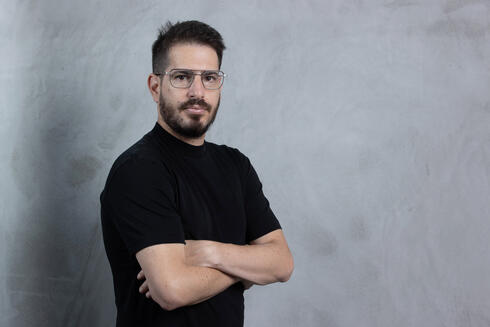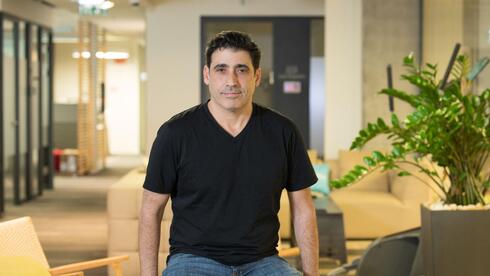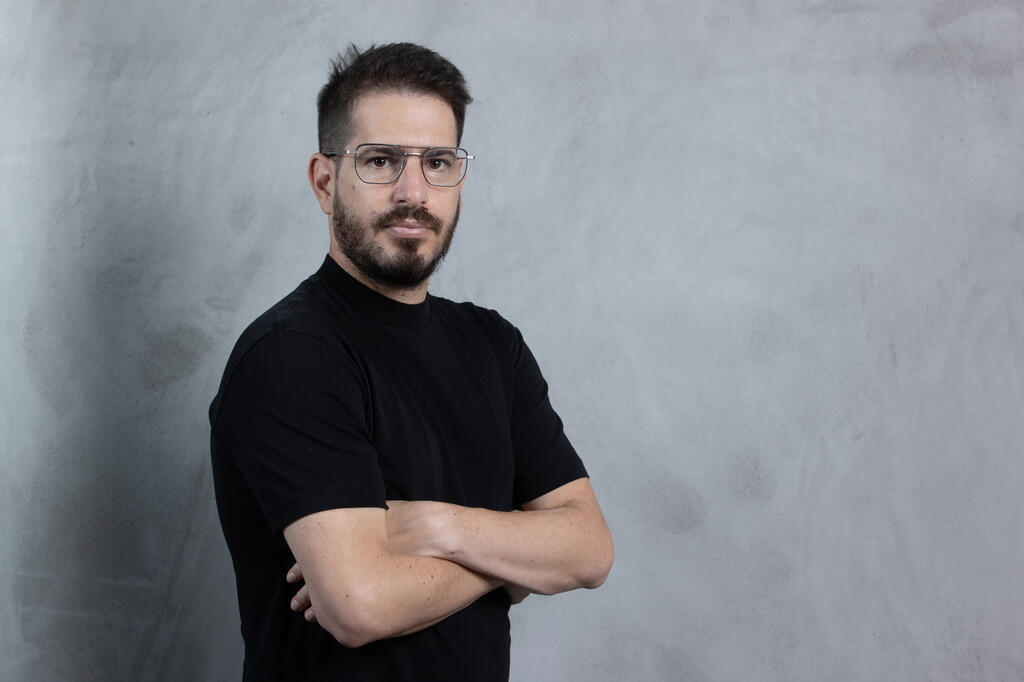
Moshe Hogeg’s ‘Tomi’ crypto meltdown marks yet another fall
Investors burned again as Hogeg’s latest crypto adventure ends in disaster, with a 96% value drop.
In recent months, crypto investors have regained some optimism. Since the beginning of the year, Bitcoin has risen by 44%, reaching $63,500, while Ethereum has increased by 14%, trading at $2,600. However, not all investors are celebrating, particularly those who joined Moshe Hogeg’s latest crypto venture. "Tomi," the digital currency he launched in early 2023, has plunged to just 5 cents, after a dramatic drop of more than 96% since the beginning of the year.
The connection between the "Tomi" coin and Hogeg was first revealed by Calcalist in June of last year. Hogeg had invited several high-profile individuals on a trip to Morocco, where he pitched them the opportunity to invest in the currency. Among the guests were Rani Zim, the controlling owner of Rani Zim Shopping Centers and the Psagot Investment House, and Barak Abramov, owner of a Japanese sushi chain and a hamburger chain. Abramov also purchased the Beitar Jerusalem football team in August 2022.
Hogeg issued the coin in January 2023 at a price of $1.15. After the launch in Morocco, a subsequent fundraising round boosted the currency’s value to $4.20, and at its peak, it reached $6.50, giving it a total market value of around $350 million. Today, as noted, the coin is worth just 5 cents, and its total market value has dropped to $26.8 million.
According to the Tomi website, the project is intended to serve as a decentralized alternative to the Internet, which it claims is censored or controlled by government regulation or corporate power, or both. The goal is to "empower the digital space with its community-governed alternative internet built on the core principles of security, privacy, and freedom" through the use of blockchain-based network management and community governance of the protocols. The project's whitepaper states that the founding team will maintain control of the project for at least four years and will be compensated after the tokens are issued. Of the tokens, 18% will be allocated to the founding team, 7% to early investors, 33% to the core team (developers and marketers), and 42% to the general public.
Hogeg worked on the Tomi project for several months, culminating in a $40 million raise. During that period, a close associate named Abraham Piha, who identified himself as Tom’s co-founder and CEO, gave several interviews regarding the IPO. Japanese investor Kohji Hirokado also participated in the IPO. Both Piha and Hirokado are shareholders in HODLR Technologies, a private Israeli company established in August 2023, located in southern Tel Aviv. This company was linked to the issuance of the digital coins. Another shareholder is Oded Hogeg, Moshe Hogeg’s brother.
Other shareholders in HODLR include two businessmen from the non-bank credit sector: Liran Yifarah, owner of the Yagel Investments fund, which provides loans to households and businesses, and Eitan Iluz, the founder and former owner of the check verfication company AppliCheck. Iluz and Zim, the same Zim who was present at the Tomi coin launch, had significant business ties. Zim acquired control of AppliCheck in February 2021 for NIS 10 million in cash, while some shares remained with another founder, Meni Guy. Guy reacquired control of AppliCheck from Zim in March 2023. AppliCheck became known to the public in 2021 after sponsoring the Beitar Jerusalem football team, which was under Hogeg’s control at the time. An inspection of HODLR’s shareholders also reveals that Kobi Shriki, joint CEO of the construction company from Netivot, holds a 2% stake.
Moshe Hogeg is also the controlling owner of the Singulariteam fund. In November 2021, he was arrested by the police in connection with the "Big Game" case, along with other former shareholders and executives of the fund. He was suspected of money laundering, tax offenses, conspiracy to commit a crime, theft by an authorized person, fraudulent receipt under aggravating circumstances, and falsifying corporate documents.
Hogeg was also accused of serious sexual, drug, and moral offenses. According to police suspicions, he raised hundreds of millions of dollars for crypto ventures under false pretenses, pocketing some of the funds with others. Hogeg, who has denied all accusations, was in custody for a month before being released to house arrest, which he ended after posting personal guarantees exceeding the loans he had taken. He is now free under restrictive conditions, including a travel ban, financial guarantees, the seizure of bank accounts, digital currencies, luxury cars, and more. His case is still awaiting a decision on whether an indictment will be filed, delayed due to the war that started on October 7.
Despite the controversies, Hogeg continues to play as an active soccer player for ameatur team Tomi Tel Aviv team. The team’s name is no coincidence, as it has helped promote the Tomi coin among his associates. Hogeg, for his part, feels he has been wronged in the case, partially by the media, and prefers to distance himself from it.















